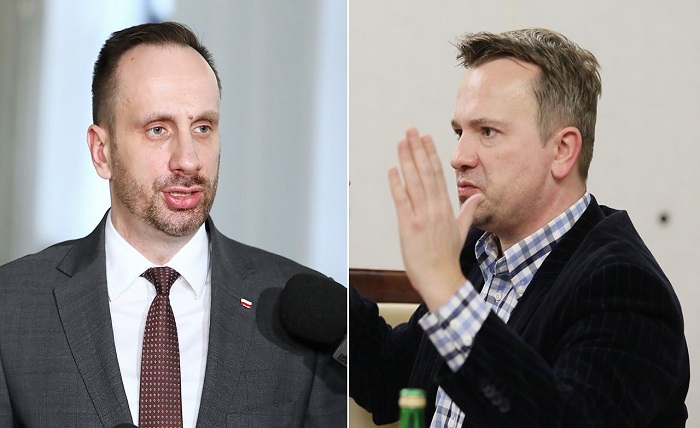Exploring Wpolityce: A Comprehensive Guide to Polish Politics”

In the realm of European politics, Poland stands as a prominent player, known for its rich history, cultural heritage, and unique political landscape. To truly grasp the dynamics of this nation’s political sphere, one must delve into the concept of “wpolityce,” a term that encapsulates the essence of Polish politics. In this comprehensive guide, we will explore the various facets of wpolityce, from its historical roots to its modern-day implications. Get ready for a deep dive into the world of Polish governance.
Origins of Wpolityce: A Historical Perspective
Poland’s political journey is intertwined with its long and tumultuous history. To understand wpolityce, we must first delve into its historical origins.
- The Early Days: The concept of wpolityce can be traced back to the formation of the Polish state in the 10th century. At this time, wpolityce referred to the principles of governance and the organization of power within the emerging Polish nation.
- Nobility and Democracy: One of the defining features of wpolityce is the Polish nobility’s significant role in shaping the country’s political landscape. The “Nobles’ Democracy” or “Nobles’ Republic” allowed the nobility to have a say in the political decisions of the country, laying the foundation for the concept of wpolityce.
Wpolityce Throughout History
Wpolityce has evolved over centuries, adapting to the changing political and social landscape of Poland.
- Partitions and Foreign Rule: Poland faced a series of partitions and foreign rule in the late 18th century, which significantly impacted wpolityce. The struggle for independence and self-governance became a driving force behind Polish politics.
- Interwar Period: The interwar period saw the restoration of an independent Poland and the development of a democratic political system. Wpolityce during this time focused on nation-building, governance, and political ideologies.
The Communist Era and Wpolityce
The mid-20th century brought about a dramatic shift in Polish politics with the rise of communism. Understanding wpolityce during this era is essential to grasp its significance today.
- Communist Rule: Under Soviet influence, Poland was governed by a communist regime. Wpolityce during this time was characterized by authoritarian control, censorship, and a struggle for political freedom.
- Solidarity Movement: The emergence of the Solidarity trade union in the 1980s marked a turning point in wpolityce. It ignited a nationwide movement for political and economic reforms, ultimately leading to the fall of communism.
Wpolityce in a Democratic Poland
Since the fall of communism, Poland has transitioned into a democratic republic. Wpolityce in contemporary Poland is shaped by a range of political ideologies and debates.
- Political Parties: Poland boasts a vibrant political landscape with numerous parties representing diverse interests. Key parties include Law and Justice (PiS), Civic Platform (PO), and the Polish Left.
- EU Membership: Poland’s accession to the European Union in 2004 has brought about significant changes in wpolityce. The country participates in EU decision-making processes and aligns its policies with EU standards.
Controversies and Challenges in Wpolityce
As with any political system, wpolityce is not without its controversies and challenges.
- Rule of Law Concerns: Poland has faced criticism from the EU for alleged breaches of the rule of law. These concerns have raised questions about the state of democracy and the independence of the judiciary.
- Polarization: The political landscape in Poland is marked by polarization, with deeply entrenched divisions between different political factions. This has made consensus-building and governance challenging.
Wpolityce in the 21st Century: Current Affairs
To truly understand wpolityce, we must also examine its contemporary relevance.
- The Role of Media: The media landscape in Poland plays a crucial role in shaping public opinion and influencing political discourse. The relationship between media and politics is a key aspect of wpolityce today.
- Social Movements: Recent years have witnessed the rise of social movements in Poland, including protests on issues such as women’s rights and LGBTQ+ rights. These movements have reshaped the political agenda and brought attention to social issues.
Wpolityce and Its Impact on Everyday Life
Wpolityce isn’t just a concept reserved for politicians and policymakers; it affects the daily lives of Polish citizens in various ways.
- Economic Policies: Government decisions on economic policies, taxation, and social programs directly impact the standard of living for citizens. Understanding wpolityce is crucial for making informed financial decisions.
- Education and Healthcare: The allocation of resources in areas such as education and healthcare is influenced by wpolityce. Citizens’ access to quality services is closely tied to political decisions.
The Future of Wpolityce
The future of wpolityce in Poland is a subject of ongoing debate and speculation. Several factors will shape the nation’s political landscape in the coming years.
- European Integration: Poland’s position within the European Union will continue to influence its policies and political direction. The relationship between Poland and the EU will be a key determinant of wpolityce.
- Demographic Changes: Changes in the demographic makeup of Poland, including population aging and migration trends, will have implications for political priorities and policies.
Conclusion
In the world of Polish politics, the term “wpolityce” represents not only a concept but also a dynamic and evolving reality. From its historical origins to its contemporary significance, wpolityce is a complex and multifaceted aspect of Poland’s national identity. Understanding wpolityce is essential for anyone interested in the nation’s political landscape, its challenges, and its future direction. As Poland continues to navigate the complexities of the 21st century, wpolityce will remain at the forefront of its national discourse, shaping the destiny of this resilient and vibrant nation.





